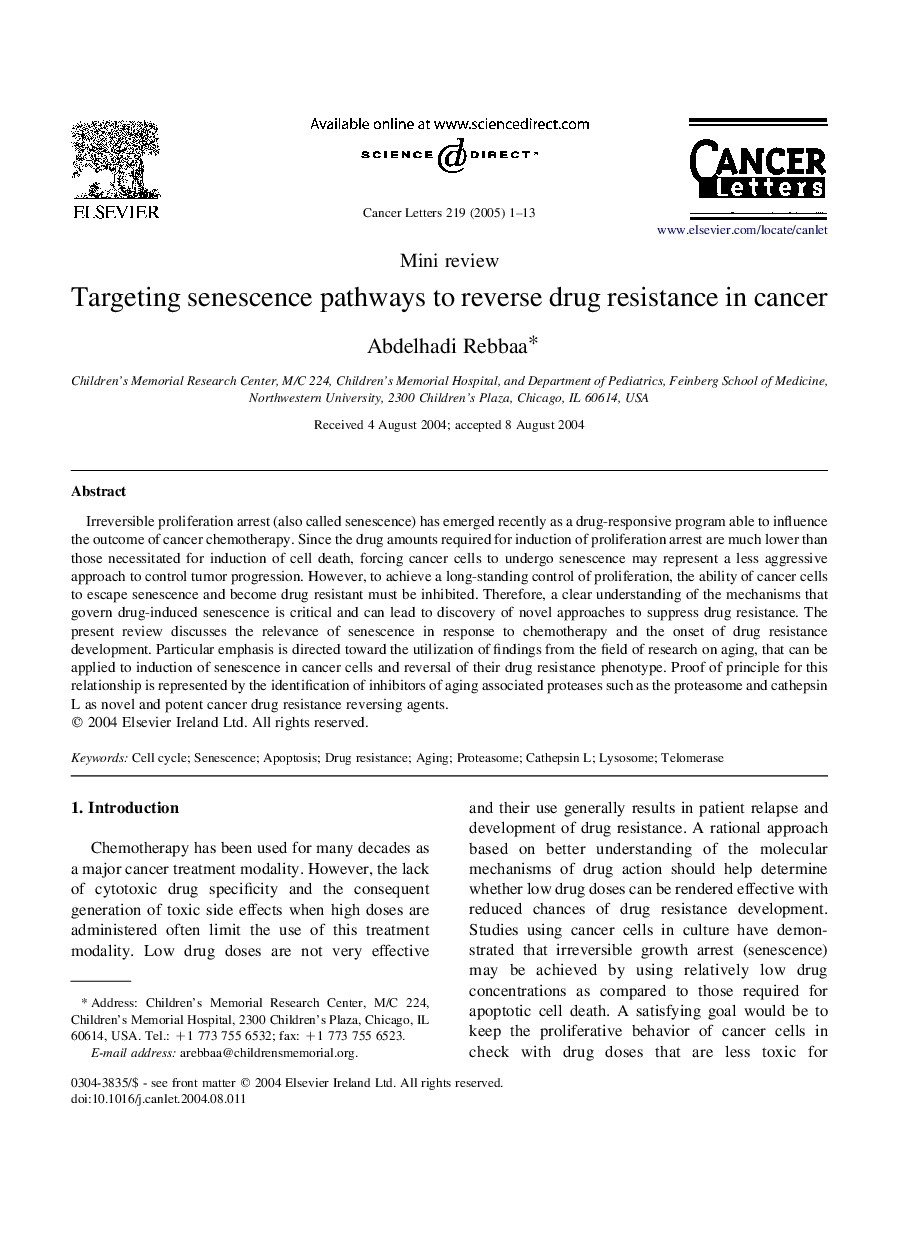| Article ID | Journal | Published Year | Pages | File Type |
|---|---|---|---|---|
| 10900506 | Cancer Letters | 2005 | 13 Pages |
Abstract
Irreversible proliferation arrest (also called senescence) has emerged recently as a drug-responsive program able to influence the outcome of cancer chemotherapy. Since the drug amounts required for induction of proliferation arrest are much lower than those necessitated for induction of cell death, forcing cancer cells to undergo senescence may represent a less aggressive approach to control tumor progression. However, to achieve a long-standing control of proliferation, the ability of cancer cells to escape senescence and become drug resistant must be inhibited. Therefore, a clear understanding of the mechanisms that govern drug-induced senescence is critical and can lead to discovery of novel approaches to suppress drug resistance. The present review discusses the relevance of senescence in response to chemotherapy and the onset of drug resistance development. Particular emphasis is directed toward the utilization of findings from the field of research on aging, that can be applied to induction of senescence in cancer cells and reversal of their drug resistance phenotype. Proof of principle for this relationship is represented by the identification of inhibitors of aging associated proteases such as the proteasome and cathepsin L as novel and potent cancer drug resistance reversing agents.
Related Topics
Life Sciences
Biochemistry, Genetics and Molecular Biology
Cancer Research
Authors
Abdelhadi Rebbaa,
